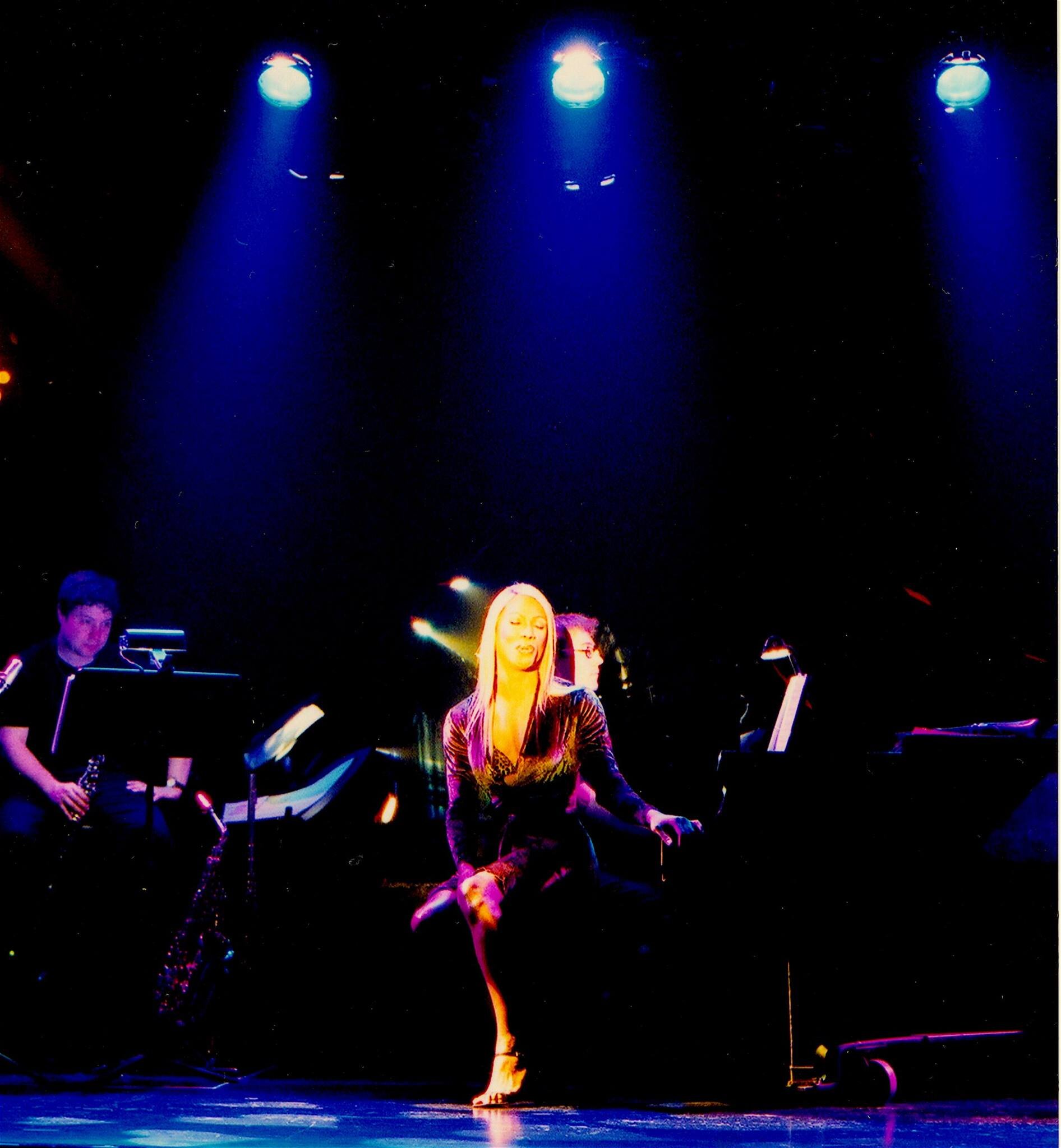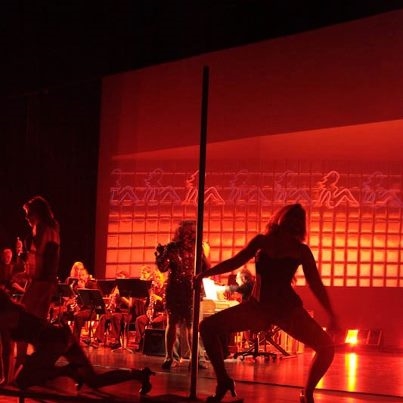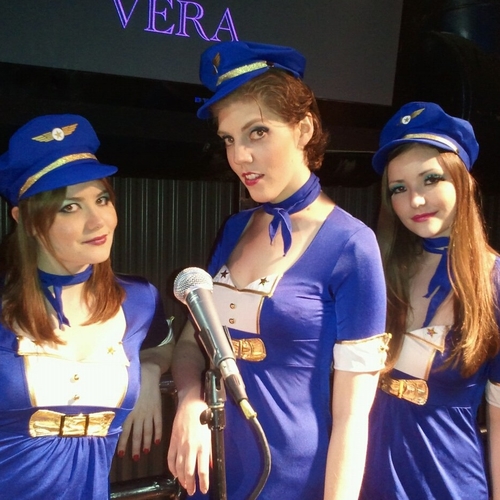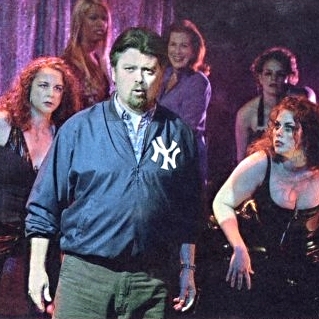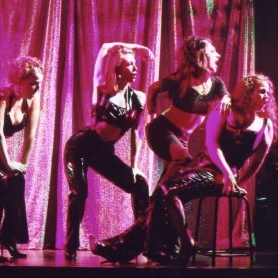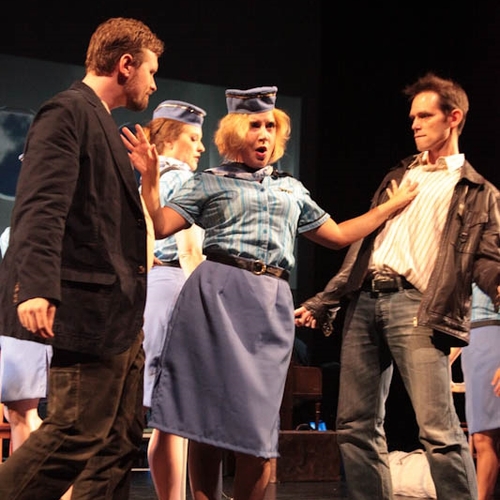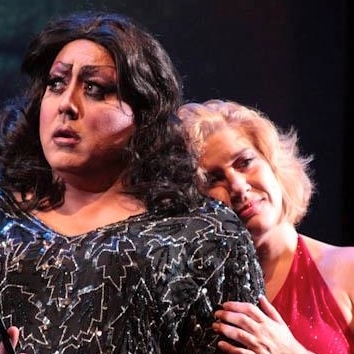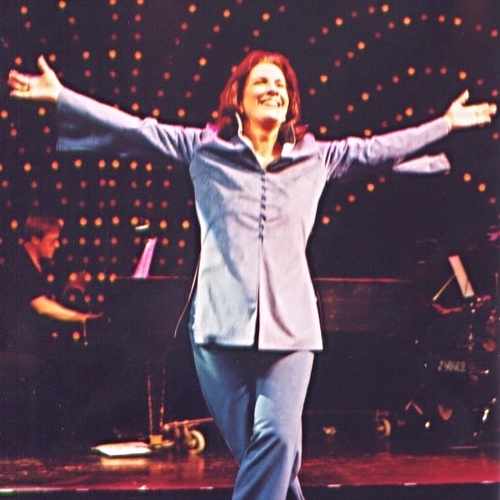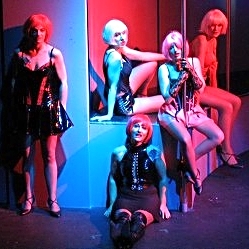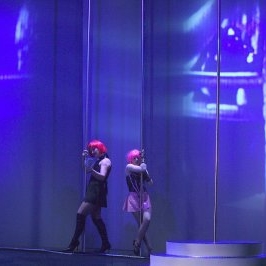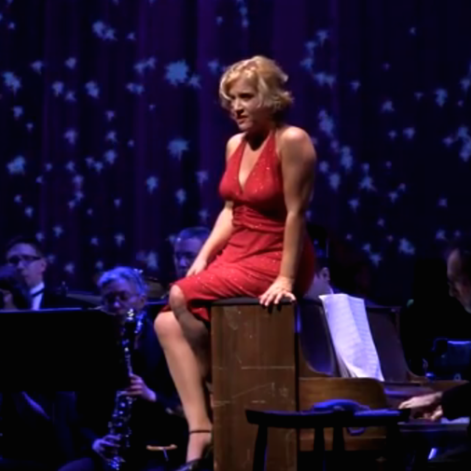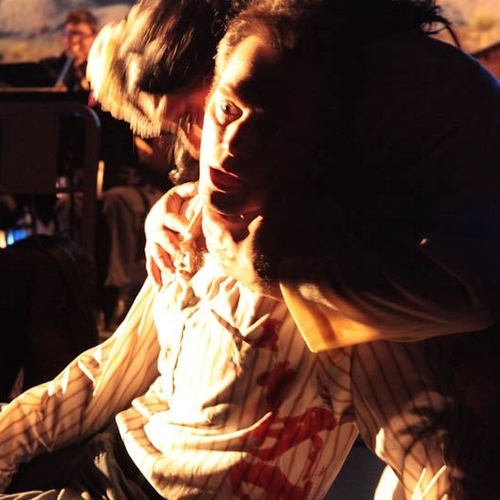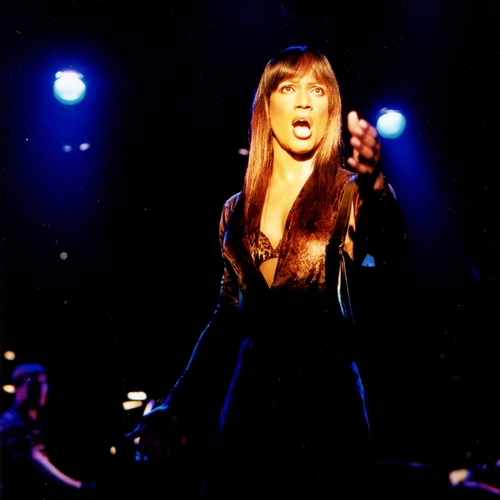A nightmare cabaret opera in one act
Cover art for the original vocal score.
Music Text
Libretto by Paul Muldoon (E)
Scoring
- "Full Vegas" version (16 players): solo voices: S, S(C-T), T, Bar; treble chorus; ob(=CA).cl(=ssax,bcl).cl(=asax,bcl).bn-tp.trb-kbd1(=tamb.)-kbd2(=synth)-kbd3(=synth)-gtr(=elect.,acoustic lead)-perc-2vln.vla.vc.cb(=elect.bass)
- "Kleine Vera" version (10 players): solo voices: S, S(C-T), T, Bar; treble chorus; 2cl(I,II=bcl).asax-2trp.trb-perc-pft-2vlns
- "Thalia Club" version (4 players): solo voices: S, S(C-T), T, Bar; treble chorus; cl(=fl,asax)-cb(=elect.bass)-pft-drum kit(=mar.,vibr.)
Publisher / Licensing Agent
Carl Fischer
Territory
This work is available from Carl Fischer worldwide.
World Premiere(s)
- European Premiere Tour: Opera Theater (Ireland) Dublin, 2004 (seven cities) / Daniel Brophy
- American Staged Premiere: 26 June 2003 / Thalia Theater at Symphony Space, NYC / The Center for Contemporary Opera / Robert Frankenberry
- Concert Premiere: 8 March 1996 / Ham Concert Hall, Las Vegas, Nevada / UNLV Opera Theater / Donna Hagen
Taco Bell (T)
Dumdum Devine (Bar)
Doll Common (S)
Vera Allemagne (T or Counter-T)
Catchalls (5-12 high voices)
Trench and Trilby (mute)
Time and Place
Las Vegas
Synopsis
"One might say the 'subject' of the 'dramatic torso' that Paul and I ginned up was the relationship between appearance and reality. What kept Paul on track, he says, during the creation of Taco and Dumdum (both IRA volunteers), was 'the realization that the nightmarish nature of the piece [was] grounded in, true to, Taco and Dumdum's nightmarish experiences in Northern Ireland, where appearance and reality are extremely difficult to establish, where an expert on the tragedies of Euripides may turn out to be a trigger-puller.' As for me, I wrote music for four deeply alienated individuals suffering from denial and an inability to connect emotionally with one another. Their truths are buried in pasts to which they return in increasingly spasmodic, acid-trip-like flashbacks... it's a slow-motion spiritual meltdown. These people are desperately unhappy, entertaining themselves in order not to have to face the fact that they feel dead inside." — Daron Hagen, from a 2011 interview.
Production Stills
Here
Links
Wikipedia | vocal score | libretto | recording
Listen
Spotify | DRAM
Selected Notable Performances
West Edge Opera, San Francisco, CA; Opera Vista, Houston, TX; UNLV Opera Theater; Opera Theater Ireland
Selected European Reviews
European critics responded enthusiastically to Opera Theater Company's premier and Irish tour: "Hagen's music... blends idioms - neo-Gershwin, jazz, soft rock, Broadway - with soaring melodies that send the characters looping off in arias of self-revelation. He has a gift for pastiche and musical surrealism as well as a distinctive voice for moments where words and music coincide." "(Hagen has) taken a polyglot approach to the music, and written it as a kind of mood-identifying background, sometimes in keeping with the words, but often deliriously, hilariously at odds with them, though in a way that manages to highlight them without undermining them. It's quite a clever ploy," writes Michael Dervan.
Selected American Reviews
American critics also responded positively to the off-Broadway premiere: The eclecticism of the music is dazzling: sharply pointed jazz lines are overlaid with slippery atonal harmony; a plaintive nineteen-seventies folk-rock ballad melds into a Broadway power anthem. Paul Muldoon's libretto is a marvel of virtuosic wordplay, exhuberant, unsettling and heroic by turns. Designating the New York premiere as the magazine's "Pick of the Week," Time Out New York described it as "a gutsy, occasionally trashy cabaret opera." "You cannot deny the theatrical audacity of Vera of Las Vegas, which elicited many cheers from the packed house," admitted the New York TImes. Mark Ward, in the Houston Chronicle, describes the central arias as "very handsome, large-scale versions of sophisticated songs in the Great American Songbook. "Mr. Hagen's music suits the style of the libretto perfectly. The idion is very much "Broadway", with references to many kinds of pop music, handled masterfully. The music is tuneful and rhythmically sophisticated, the words set clearly. Much of the music comes in short bursts of a phrase or two which almost interrupt each other in rapid succession, except for two long arias, one for Doll and one for Vera, which are quite successful in projecting a long lyric line. Altogether the opera is a musical tour de force." From the Bernstein-like brashness of the opening bits to Doll's slow pop-ballad aria to Vera's eleventh-hour-save torch song, Hagen goes for broke. And his obvious affinity for Muldoon's wacky, all-over-the-map text, leads to a seamless marriage of words and music, even if the libretto, at times, is too poetically clever for its own good."
Illustration of an overview of Vera of Las Vegas in The New Yorker.

